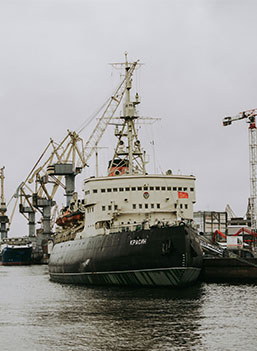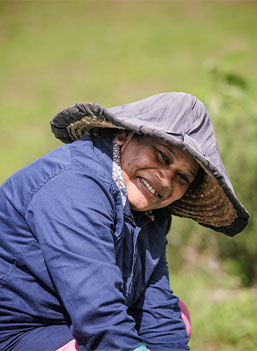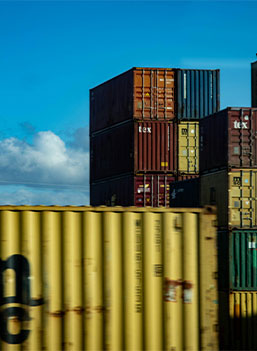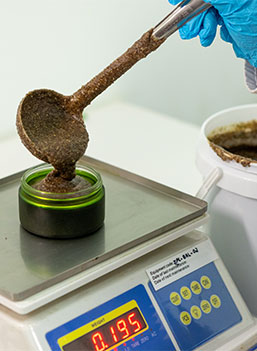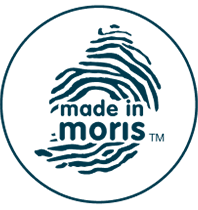Behind the scenes: our challenges and limitations
Our island-based and economic model faces us with realities that don’t always align with our commitments. In the spirit of transparency – a value we deeply cherish and that is reinforced by our B Corp certification – we wanted to share with you the main limitations that Attitude Hotels faces. Here, we are mainly talking about Mauritius, where we were born and raised, and where we have the most perspective on our activities. This clear-sighted and transparent approach also applies to Zanzibar. This page is inspired by Veja, a fellow B Corp company. They undertook a similar exercise by outlining the limitations of their project – challenges they haven’t (yet) been able to overcome. Now it’s our turn.
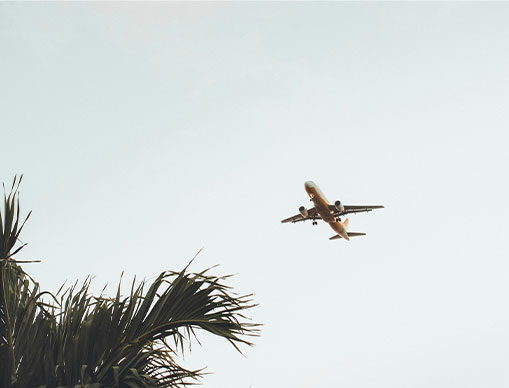
Air travel: a lingering paradox
How can we talk about sustainability when our activity relies on an industry with one of the highest carbon footprints? As an island, flying is the only way we avoid being just a dot on the map. This geographical fact weighs heavily on the carbon footprint of both travellers and our suppliers.
Faced with this reality, our solutions are limited. Emission offsetting is one option, but the transparency and effectiveness of these initiatives are still debated.

So rather than compensate, we encourage alternative ways to explore once you’re here – offering sustainable experiences rooted in local culture and supporting local development.
Energy: shadows in the sunshine
Mauritius is bathed in light. And yet, 80% of its energy still comes from fossil fuels. Currently, we still rely on the Mauritian public grid, and our transition to solar energy is slowed by technical constraints (unsuitable roofs and infrastructure, lack of space) and economic ones (high costs and a discouraging buyback model). The shift won’t happen overnight, but we’re aiming for a turning point by 2027.

Solar power has been built into the core design of our new hotel in Zanzibar. From its opening, 50% of its energy needs will be met through solar, with the goal of reaching 80% by 2028.
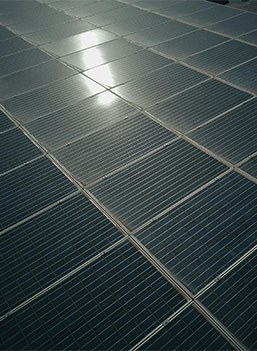
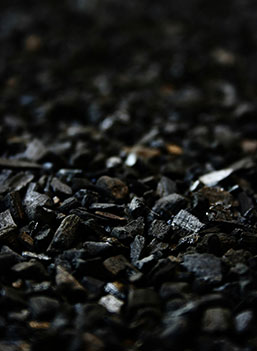
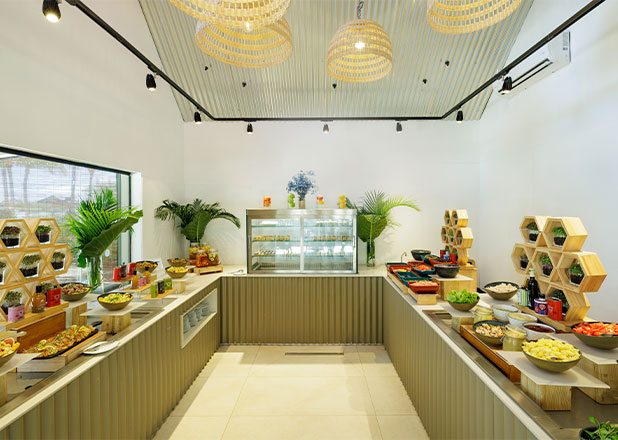
All-inclusive: everything, but at what cost?
It’s a staple of the industry, but behind the comfort of an all-inclusive stay lies the issue of waste and overconsumption. Internal practices (such as accurate guest count forecasting, made-to-order cooking, or using surplus food for our staff canteen) haven’t yet eliminated 100% of that risk.
We’ve made it a habit to cook unserved buffet leftovers for our staff meals. When that’s not possible, we donate them to local pig farms.
Our logistical dependency
Mauritius is an island with limited resources. Local production cannot meet all needs, and very few raw materials are produced locally. Out of necessity, we rely on imports, by ship or plane.
That said, within the Mauritian hospitality sector, we consider our local sourcing to be relatively significant. To date, 52% of our food and beverage offerings come from producers certified as ‘Made in Moris’, ensuring the supplies are 100% made by local partners belonging to the scheme. When it comes to renovations, about 70% of our furnishings come from Mauritian workshops. It’s not always the easiest or cheapest path, but it’s the one that makes the most sense.
Our alternatives are gradual and partial, but we continue nurturing them through each project with a vibrant ecosystem of local artists, artisans and entrepreneurs. In this regard, we’re particularly committed to the 250 other ‘Made in Moris’ certified businesses, supporting one another along the way.
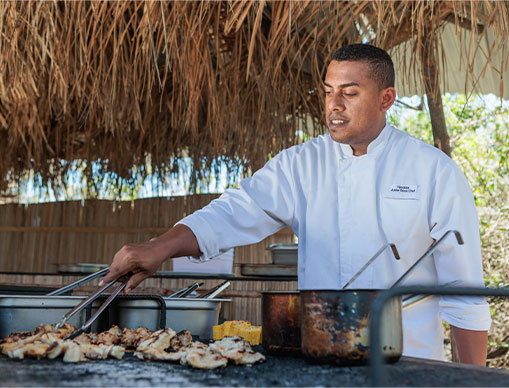
Hotel service: a demanding pace
Another key challenge: human resources. Providing a top-tier experience demands a lot from hotel teams. Depending on the role, schedules can extend to 6 days a week – especially during peak season. We’re constantly recruiting to better distribute workloads and support a healthier work-life balance.

Our main goal: to give each team member one extra day off per month, ensuring two consecutive days off once a month.
Climate change
Beach erosion, coral bleaching, water scarcity... Mauritius is on the frontlines of climate change. This challenge goes far beyond us, and global dynamics inevitably place limits on what we can achieve. But does that mean we should do nothing? Certainly not.
At our level, we act: rehabilitating beaches, protecting marine species, and adapting our infrastructure to climate realities. This is the spirit in which we created the Marine Discovery Centre – a space dedicated to raising awareness and protecting the lagoon – and the Attitude Foundation, which supports concrete environmental initiatives.

Our actions won’t stop climate change, but they can at least help limit its impact on our island.
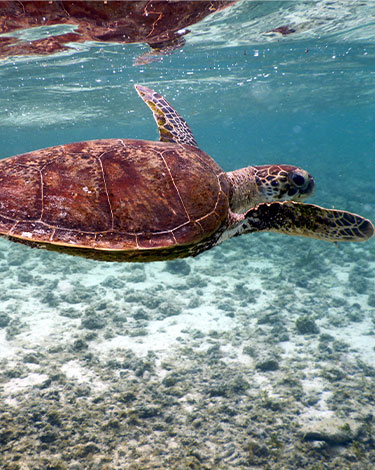
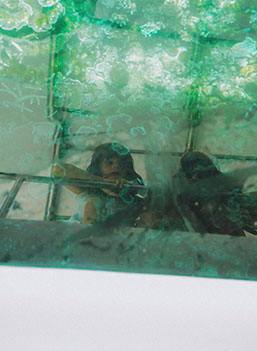
Neither perfect nor fixed
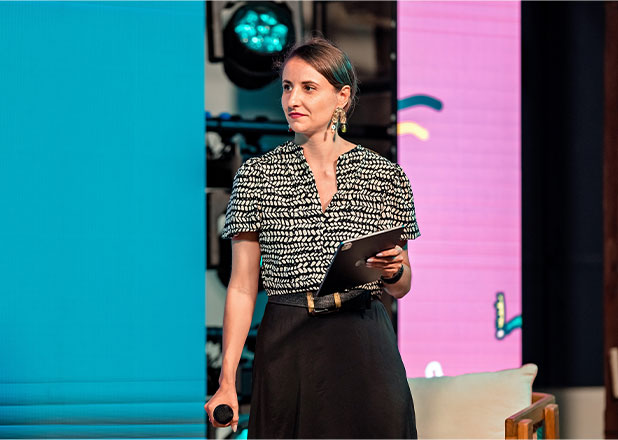
«Some of these limitations are structural; others stem from conscious choices that we fully embrace, even as we continue to question them. We’ll manage to overcome some, but new ones will emerge. It’s not about perfection, but about balance – between economic demands, operational constraints, and long-term sustainability goals. The concrete, measured actions we take – sometimes against the grain of industry norms – contribute to this balance. And it is this way, step by step, that we move forward.
»
Juliette Deloustal, Sustainability Manager
Bienvenue
à destination(s)
-
Who we are
-
The team
-
Media
-
FAQ
-
Shall we discuss?
-
Where are we?
Our hotels in Mauritius
Zanzibar
